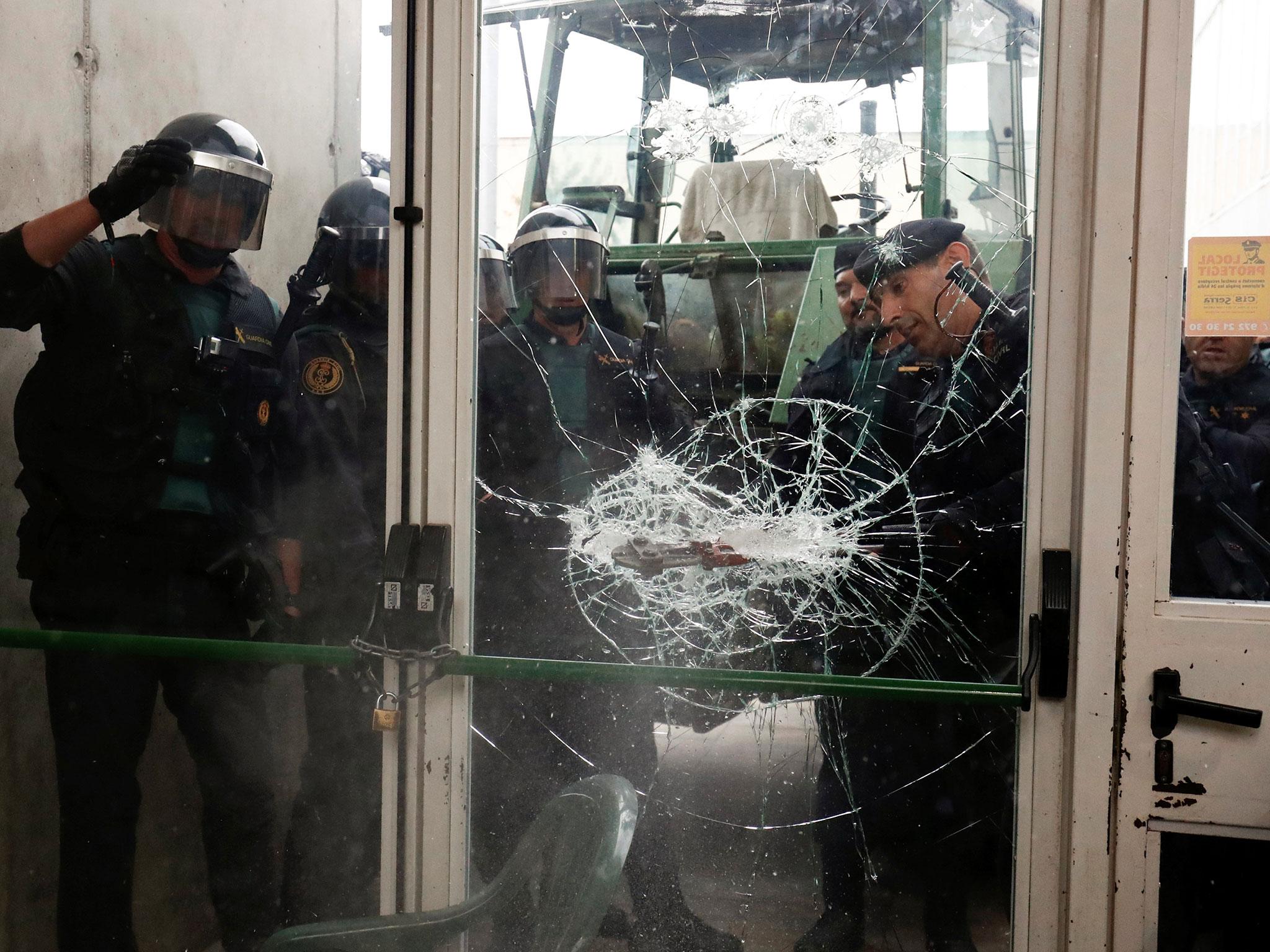Police brutality has made any long-term solution to the Catalan question increasingly difficult
The abiding memory of this poll – illegal in the view of the Spanish government; essential to many Catalan eyes – will be the scenes of police officers from other parts of the Spanish kingdom wielding batons against unarmed men and women in Barcelona

It had become increasingly clear during the last fortnight that the constitutional ructions in Spain were unlikely to be peaceably resolved. Neither side in the dispute over Catalonia’s right to hold a referendum on independence has shown much appetite for compromise. The result has been bloody violence on the streets of Barcelona, with hundreds of civilians injured in clashes with national police and the civil guard.
Arguably, this moment has been inevitable since separatist parties won Catalonia’s parliamentary elections in 2015 and subsequently passed a declaration to begin a formal process towards independence. From the get-go, that process has been stridently opposed by Spain’s central government; indeed, it was plainly at odds with the Spanish constitution, which declares the country to be indivisible. The decision of the Catalan parliament to enact a law calling for the referendum to take place this weekend simply brought matters to a head.
Needless to say, the history of Catalan disgruntlement with the rest of Spain has its roots long before 2015. For hardened “independistas”, the whole of the last three centuries have been more or less a battle to reverse Barcelona’s capture by Philip V; and more recently to undo the region’s subjugation under the rule of General Franco. The last four decades have broadly seen a return to autonomy, although the pendulum has not been without swings in the other direction. Spain’s lengthy recession during the last 10 years has added fuel to the feeling of many in relatively well-off Catalonia that the future would be rosier if they were not being held back by poorer regions of the country.
It would be quite wrong, however, to conclude that Catalans are overwhelmingly convinced by the arguments in favour of independence. Only three years ago, a non-binding poll – also ruled unlawful by the Spanish Constitutional Court – found 81 per cent of voters to be in favour of an independent state. But the turnout was only 35 per cent. Opinion polls earlier this summer suggested support for full separation from Spain was falling.
In these circumstances, Spain’s Prime Minister, Mariano Rajoy, could have taken a chance and allowed the referendum to go ahead, banking on either a majority voting against independence or on the turnout being so low that the result would have no legitimacy. However, with the Catalan leadership having declared that the referendum must be legally binding and its result acted on within 48 hours, the stakes have been raised too high for Rajoy to conclude that he can stand idly by. He is also only too aware that Catalonia is not the only region within his country that has designs on life outside Spain’s borders.
Yet by taking the aggressive path he has in recent weeks, Rajoy has if anything made matters worse – albeit that he must believe he is in a no-win situation. In the immediate term, the various efforts of the authorities to prevent the referendum taking place have proved to be only partially successful. The Catalan government will, aside from anything else, be able to count the votes of at least some of its residents and declare a result – however unsatisfactory that result would be in any normal circumstances.
Beyond that, the abiding memory of this poll – illegal in the view of the Spanish government; essential to many Catalan eyes – will be the scenes of police officers from other parts of the Spanish kingdom wielding batons against unarmed men and women in Barcelona. That, for Madrid, is a disaster – not only because wavering Catalans may be persuaded to throw in their lot with the independistas, but because it leaves little room for manoeuvre when it comes to deciding what happens next.
We should not imagine that Spain is on the verge of civil war. Equally, we should consider how we in the UK would feel if Barcelona was Edinburgh and English police were battering Scots who wished to express their democratic will. For many in Spain, the shocking images they are seeing from the country’s second city will feel very unsettling indeed. And there remains no obvious long-term solution which can accommodate or assuage the desires and concerns of all sides.
Join our commenting forum
Join thought-provoking conversations, follow other Independent readers and see their replies
Comments
Bookmark popover
Removed from bookmarks